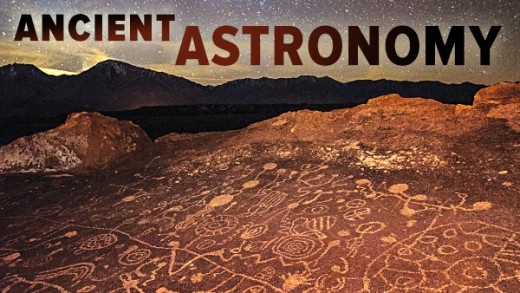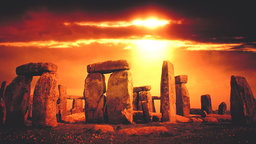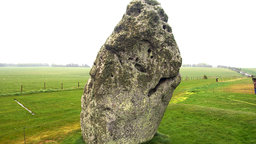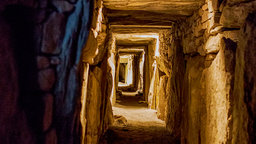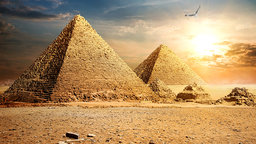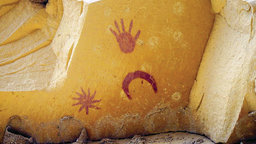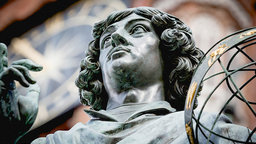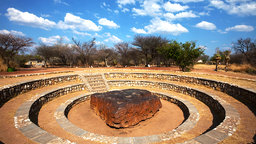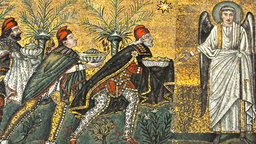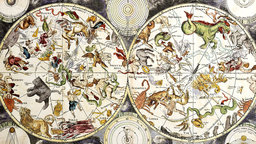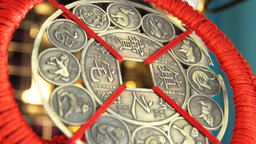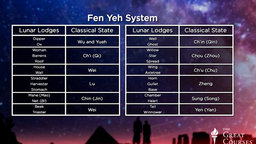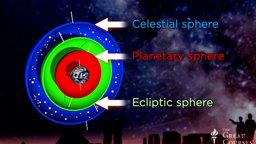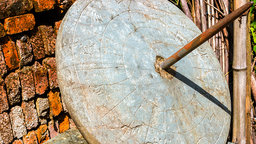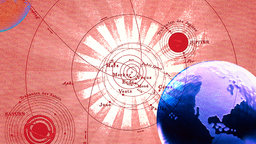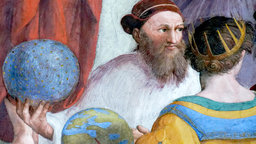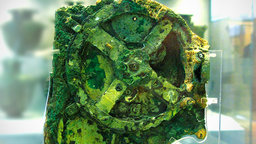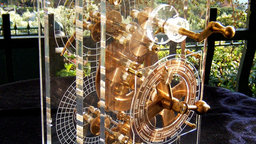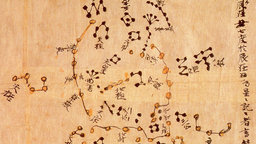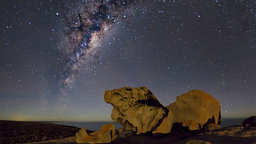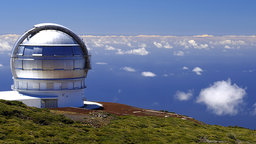Ancient Astronomy: Difference between revisions
No edit summary |
|||
| (6 intermediate revisions by the same user not shown) | |||
| Line 1: | Line 1: | ||
[[Image:ancient astronomy.jpg|right]] | |||
As I mentioned on the main [[The_Great_Courses|The Great Courses]] page, I like this show pretty well, and would recommend it as a good introduction to the history of astronomy and of the development of calendars and time keeping, as well as navigation. | As I mentioned on the main [[The_Great_Courses|The Great Courses]] page, I like this show pretty well, and would recommend it as a good introduction to the history of astronomy and of the development of calendars and time keeping, as well as navigation. | ||
| Line 4: | Line 6: | ||
This is the general description of the course/series. | This is the general description of the course/series. | ||
<blockquote>''In a world without artificial lights, the night sky was ablaze with over a thousand stars, whose patterns illustrated stories people had heard since childhood. Thus, ancient people viewed the sky differently than we do. Skywatching was crucial to daily life, since the motions of the heavens served as timekeeper, calendar, compass, and almanac for planning when to plant and harvest. The perfect regularity of celestial cycles was the only guaranteed aspect of life and inspired a wide range of religious and philosophical views, as different cultures struggled to grasp the unseen forces that govern the cosmos.''</blockquote> | <blockquote>''In a world without artificial lights, the night sky was ablaze with over a thousand stars, whose patterns illustrated stories people had heard since childhood. Thus, ancient people viewed the sky differently than we do. Skywatching was crucial to daily life, since the motions of the heavens served as timekeeper, calendar, compass, and almanac for planning when to plant and harvest. The perfect regularity of celestial cycles was the only guaranteed aspect of life and inspired a wide range of religious and philosophical views, as different cultures struggled to grasp the unseen forces that govern the cosmos.''</blockquote> | ||
== Episode 1 Stonehenge and Archaeoastronomy [[Image:4.5-stars.png|100px]] == | == Episode 1 Stonehenge and Archaeoastronomy [[Image:4.5-stars.png|100px]] == | ||
| Line 141: | Line 145: | ||
</br> | </br> | ||
== Episode 24 Ancient Astronomy and Modern Astrophysics [[Image: | == Episode 24 Ancient Astronomy and Modern Astrophysics [[Image:4-stars.png|100px]] == | ||
[[Image:AA_E24.jpg|left]] | [[Image:AA_E24.jpg|left]] This was really good. It's fascinating that some of the ancients were good, and disciplined, enough to make observations of sufficient quality to enable future discoveries and determinations to be made by careful tracking and noting the differences. | ||
</br> | </br> | ||
<blockquote>''Finish the course by seeing how ancient records of eclipses and supernova explosions have refined our modern understanding of Earth-Moon dynamics and stellar processes - proving that today's cutting-edge astrophysicists…''</blockquote> | <blockquote>''Finish the course by seeing how ancient records of eclipses and supernova explosions have refined our modern understanding of Earth-Moon dynamics and stellar processes - proving that today's cutting-edge astrophysicists…''</blockquote> | ||
</br> | </br> | ||
Latest revision as of 12:11, 20 March 2019
As I mentioned on the main The Great Courses page, I like this show pretty well, and would recommend it as a good introduction to the history of astronomy and of the development of calendars and time keeping, as well as navigation.
The Remarkable Science of Ancient Astronomy
This is the general description of the course/series.
In a world without artificial lights, the night sky was ablaze with over a thousand stars, whose patterns illustrated stories people had heard since childhood. Thus, ancient people viewed the sky differently than we do. Skywatching was crucial to daily life, since the motions of the heavens served as timekeeper, calendar, compass, and almanac for planning when to plant and harvest. The perfect regularity of celestial cycles was the only guaranteed aspect of life and inspired a wide range of religious and philosophical views, as different cultures struggled to grasp the unseen forces that govern the cosmos.
Episode 1 Stonehenge and Archaeoastronomy 
I really liked Episode 1 as it starts to describe Stonehenge and importance of tracking the motions of the sun to its northern and southern extremes at the solstices for tracking the seasons, and thus why building alignments to determine this were important.
Why were the motions of the Sun, Moon, and stars so important to ancient people? Investigate key astronomical directions noticed by all cultures. Then embark on your study of Stonehenge,…
Episode 2 The Real Stonehenge 
This episode was pretty good, including an in-depth discussion of the various theories on the possible alignments at the henge, which are of interest to me particularly because my brother-in-law grew up very near Stonehenge.
In the popular mind, Stonehenge was built as a sophisticated astronomical calculator presided over by priestly astronomers called Druids. But is this view dating from the mid-1960s correct? Address the…
Episode 3 Alignments at Maes Howe and Newgrange 
This episode was fine, and I would watch it (and did) as part of the series, but not quite as interesting as Episode 2.
Explore Neolithic tombs and monuments across Europe, discovering an array of alignments toward astronomical events. Start with two sites that are similar to Stonehenge in their clear orientation to the…
Episode 4 Astronomy of Egypt's Great Pyramid 
I always find the pyramids interesting, and this was no exception. I was interested in his take on the shafts pointing to the stars since I'd read a book on this previously, and was surprised to find that these shafts were not as regular as I had imagined and that one could not actually site the stars from inside of the tomb as I had previously believed.
Study the astronomical significance of Egypt's Great Pyramid. How did its builders achieve such phenomenal accuracy in the pyramid's alignment to the cardinal directions? Were its air shafts intended to…
Episode 5 Chaco Canyon and Anasazi Astronomy 
Similar to the pyramids, I've always had a fasciantion with the Anasazi, and was disappointed to hear that the sun-dagger had been damaged by tourism. It's still a place that is on my bucket list to see if I ever get the chance.
Travel to Chaco Canyon, New Mexico, where the Anasazi culture practiced sky-centered rituals a thousand years ago. Look for evidence of their astronomical knowledge, examine their many "sun daggers," and…
Episode 6 Ancient Cosmologies and Worldviews
Interesting, but to me, not as interesting as some of the other episodes.
Consider the astronomy-based world views of different ancient cultures and how they answered the three big questions: Where did the world come from? What is the nature of the universe?…
Episode 7 Meteorite Worship and Start of the Iron Age 
An above-average episode for me, as I was unaware that primitive man used the iron from meteors to prior to developing the technology to actual produce iron.
Witnessing a meteor fall must have been a strange and awe-inspiring experience for people long ago. Travel around the world to places where meteorites were worshiped and also used as…
Episode 8 Eclipses, Comets, and Omens 
Again, interesting, but not as much as some of the others. It's really hard to image seeing an eclipse or comet and not know what it was, but on some level I can accept that if you didn't know it would be frightening.
Since no human can touch the sky, any unexpected celestial event must be a divine omen. Reenter this primordial state of mind, seeing eclipses and comets the way they were…
Episode 9 The Star of Bethlehem 
Another pretty good episode, partly just because I appreciate it that not all men of science immediately discount anything of faith or in the Bible. Much like in Cosmos, there are excellent descriptions of the faithful aiding our understanding of the stars.
For centuries, astronomers have struggled to find an explanation for the Star of Bethlehem, recounted in the Gospel of Matthew. Professor Schaefer focuses on a recent theory that has taken…
Episode 10 Origins of Western Constellations 
Pretty good, but constellation history is covered everywhere, so a lot of this wasn't really new to me.
The human propensity for pattern recognition and storytelling has led every culture to invent constellations. Trace the birth of the star groups known in the West, many of which originated…
Episode 11 Chinese and Other Non-Western Constellations 
Pretty good, but again, like Episode 10, much of this is covered elsewhere so it feels less valuable, though it's exclusion would also seem strange. Worth watching.
Study the constellation patterns of ancient China, which influenced those of India and Arabia. Professor Schaefer dates the origin of the Chinese star groups called lunar lodges, and he samples…
Episode 12 Origins and Influence of Astrology 
Astrology. What more is there to say? It is historically important, and it's interesting that they don't deal with precession, but otherwise? Meh.
Astrology grew up hand in hand with astronomy. Focus on the different astrological traditions in Mesopotamia, China, India, and Mexico. Also trace the spread of astrology through the Mediterranean world.…
Episode 13 Tracking Planet Positions and Conjunctions 
Until the invention of the telescope in 1610, astronomy was mostly the study of the sky positions of the Sun, Moon, and planets. Learn the extraordinary precision attained by ancient…
Episode 14 Ancient Timekeeping and Calendars 
Astronomy for timekeeping is really important, so this was pretty interesting. They talk about this on the Cincinnati Observatory's museum tours, about how they were responsible for "official" time locally for many years, and actually had a line to the clocks downtown so they could update time.
For ancient people, keeping track of the time of day and year required a detailed understanding of the motions of the Sun, Moon, and stars. See how different cultures solved…
Episode 15 The Lunar Crescent and the Islamic Calendar 
This was pretty interesting, actually, I had no understanding of the Islamic calendar before this so I was keen to learn about the crescent moon (as an aside, I didn't know this is why the crescent is on the flags either) and it's importance, and the fact that Ramadan slides across the Gregorian calendar because of the moon cycles.
Delve into the surprisingly tricky problem of deciding when a lunar month begins - usually determined by the first sighting of a crescent Moon after new Moon. Professor Schaefer describes…
Pretty good show, and I feel like I understand how the Pacific Islanders used the stars - since they follow directly over the meridian on the equator - to follow latitude lines, I'm a little unclear about exactly how the Norse used the stars, but that's probably just me.
In the era before compasses and GPS, precise direction-finding was possible only through knowledge of the sky. Learn how the Polynesians found islands across thousands of miles of open ocean,…
Episode 17 Breakthroughs of Early Greek Astronomy 
I enjoyed the whole section on the Greeks and how they determined not only that the earth wasn't flat, but proved it and determined a rough size for it, long before Columbus (that many were taught was the first "believer" in a round Earth).
Between 600 and 200 BC, Greek astronomers went from being flat-Earthers to full proto-scientists with reasonable models and distances for the Solar System. How and why did this revolution happen?…
Episode 18 The Genius of Hipparchus 
Pretty good account of the greatest of the ancients.
Considered the greatest astronomer of the ancient world, Hipparchus created a thousand-star catalog and discovered precession, the eons-slow rotation of the fixed stars around the ecliptic. Did this remarkable discovery…
Episode 19 Revealing the Antikythera Mechanism 
Pretty good. The Antikythera mechanism wasn't that interesting to me personally, but I understand it's historical significance.
In 1901, divers off a Greek island discovered a corroded bronze artifact composed of interlocking gears. Later analysis and X-ray imaging show it is an astonishingly versatile astronomical computer. Professor…
Episode 20 How the Antikythera Mechanism Worked 
This was a little more Antikythera than I needed, but it wasn't bad.
Learn to operate the Antikythera mechanism, the glory of ancient astronomy. Modern models show how a simple turn of the crank could reveal the day of the year, phase of…
Episode 21 Achievements and Legacy of Ptolemy 
Ptolemy was huge, so this was pretty interesting.
Ptolemy has been called the greatest astronomer of antiquity. But was he? Evaluate his reputation by focusing on his star catalog, celestial coordinate system, and magnitude scale. Then gauge the…
Episode 22 Star Catalogs from around the World 
Meh. It was OK, and the recounting of his research was interesting enough, if not really important.
The genius of Greek astronomy is epitomized by the star catalogs of Hipparchus and Ptolemy. Professor Schaefer recounts his exciting discovery of a star chart apparently influenced by Hipparchus's lost…
Episode 23 How Ancient Astronomy Ended 
A nice wrapping up.
Review the state of astronomy in 1500. Then chart the revolution sparked by Copernicus's heliocentric theory of the Sun and planets. Learn how Copernicus was the last of the ancient…
Episode 24 Ancient Astronomy and Modern Astrophysics 
This was really good. It's fascinating that some of the ancients were good, and disciplined, enough to make observations of sufficient quality to enable future discoveries and determinations to be made by careful tracking and noting the differences.
Finish the course by seeing how ancient records of eclipses and supernova explosions have refined our modern understanding of Earth-Moon dynamics and stellar processes - proving that today's cutting-edge astrophysicists…
